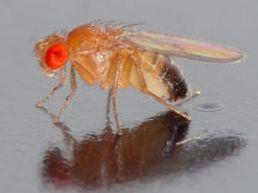
The Australian Senate Rural and Regional Affairs Committee has collated 30 submissions from peak industry bodies and growers to assess the impacts of restricting the use of fenthion on Australia’s horticulture industry.
The Senate inquiry has recommended the streamlining and simplification of chemical regulations and suggested that if fenthion is banned, that it be phased out over 12 months. Recommendations included taking a national, cooperative approach in communication, regulation and legislation relating to the use of chemicals, including looking into alternative chemical and non-chemical approaches to pest management.
Concerns raised by submissions included the effects on Australia’s export market, with more than 75 per cent of Australian fruit and vegetable exports susceptible to fruit fly.
“From an export marketing perspective, if we can rid Australia largely of fruit fly, it just gives us such a huge advantage in our international markets which is what we have to do to make sure our horticultural industries are sustainable,” Liberal Senator Anne Ruston told ABC Rural.
The Department of Agriculture’s submission to the inquiry stated that controlling fruit fly was integral to international trade, but found that restricting the use of fenthion would have a negligible impact on international market access.
Summerfruit Australia argued the impacts would be detrimental to Australia’s stone fruit industry, stating that, “The long term impact is that if no other controls of fruit fly are found, then the stone fruit industry in Australia could rapidly decline, resulting in business closing, jobs being lost and the viability of the industry threatened.”
Horticulture body Growcom has echoed the concerns, stating the restriction of fenthion would have a “difficult to manage” impact on the Australian horticulture industry.
Fenthion is used to control Queensland and Mediterranean fruit fly as well as quarantine treatment in Australia, but since the 1990s has been phased out of countries including the US, Canada and New Zealand, as well as the EU.
According to the ABC, the Australian Pesticides and Veterinary Medicines Authority has said it will work alongside the Department of Agriculture to consider the recommendations of the Senate inquiry.






No comments yet